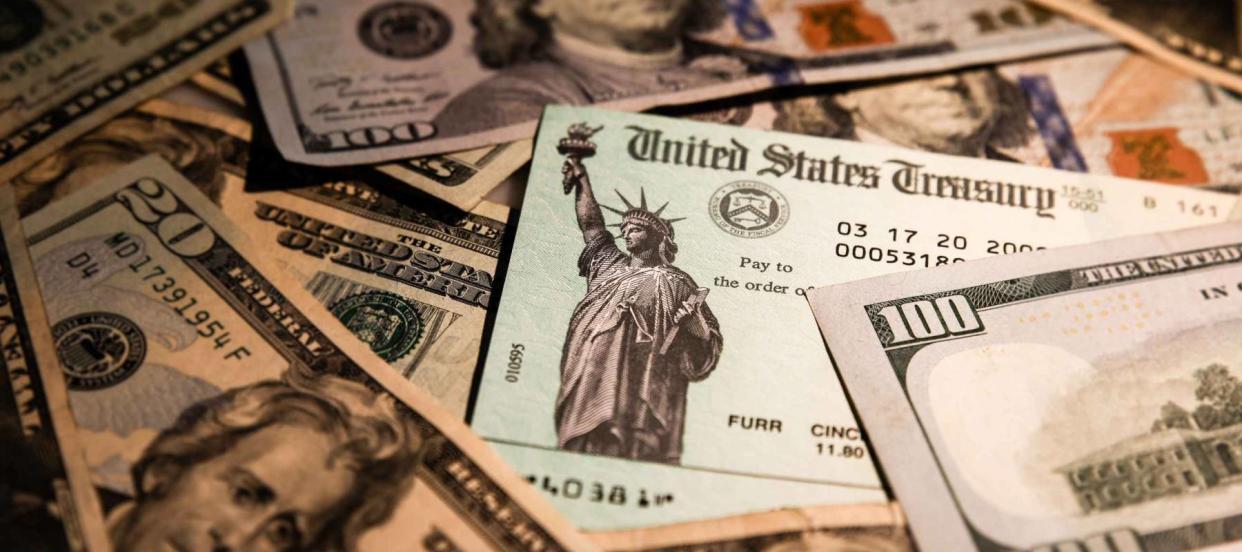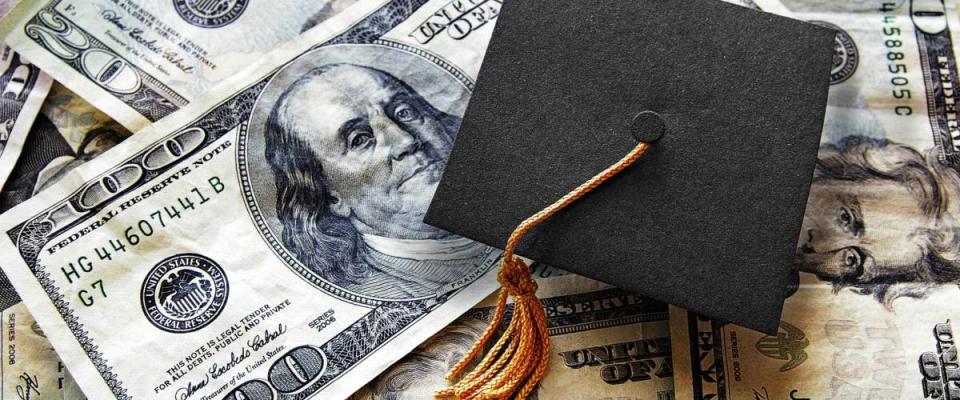9 ways to DIY your next stimulus check (and forget Congress)

Washington is still all talk, talk, talk but no action when it comes to sending you a second $1,200 payment to give your household budget and the U.S. economy another boost during the ongoing crisis.
The Democrats who run the U.S. House and the Republicans in charge of the Senate and the White House have been negotiating for months — but they still haven't agreed on a new relief package that would include another round of those "stimulus checks," like most people got earlier in the year.
Had enough? If you could use another $1,200 right now, stop waiting for Washington to get its act together. Here are nine ways to find sources of cash and get a second stimulus payment the DIY way.
1. Go after your long-lost money

You may have some money sitting out there, maybe in an old account, that you've completely forgotten about. The National Association of Unclaimed Property Administrators says the states return $3 billion in unclaimed property to its rightful owners every year.
You can search what's in state databases of unclaimed funds by going to MissingMoney.com. There, you'll find out if you left any money in an old checking or savings account, or if you’re entitled to life insurance proceeds from relatives who've passed away and never told you about their policies.
(You'll want to be more careful about notifying beneficiaries when you buy your own life insurance policy.)
2. Cut your car insurance costs
If you're like most people, your car insurance is due every six months. It's very easy to get complacent and just blindly keep paying your premiums — which is how you wind up paying too much.
Drivers can save an average $1,127 a year by shopping around regularly for the lowest auto insurance rates, a study by CarInsurance.com found. Each time your policy comes up for renewal, compare rates from multiple insurers to make sure you're paying the best price.
Shopping around and comparing rates has become even more crucial during the pandemic, because many insurance companies have slashed premiums as Americans commute less.
3. Refinance your mortgage

If you're a homeowner with a mortgage, you might easily create a $1,200 stimulus payment for yourself by refinancing to one of today's dirt-cheap mortgage rates.
Thirty-year fixed-rate mortgages are currently averaging a record-low 2.81% in the nearly 50-year-old weekly survey from mortgage company Freddie Mac. At today's rates, 19.3 million homeowners could save an average $299 a month by refinancing, according to estimates from Black Knight.
The mortgage data firm says you're a good refi candidate if own at least 20% of your home, could cut your 30-year mortgage rate by three-quarters of 1 percentage point (0.75) or better, and have a credit score of 720 or higher.
4. Score savings on your home insurance
As with your car insurance, you can fall into the trap of paying too much for your homeowners insurance if you don't shop around. Prices can be all over the place.
As an example, LendingTree's ValuePenguin site found annual home insurance rates in Florida can vary by more than $1,500 for coverage that's nearly identical.
Use a website that will let you size up quotes from hundreds of insurers for free, to see the best deals available in your area.
5. Supplement your income with a side hustle

If you've got a hobby or some special skills or talents, you might be able to land some side work to earn the equivalent of a second stimulus check.
Do you write? Know website or graphic design? Have a knack for doing celebrity impressions? You can use an online marketplace for gig work and find someone looking to pay for your unique services.
It’s sort of like online dating: You just create a profile describing what you can offer, and people will contact you if you've got what they're looking for.
6. Pay less whenever you shop online
If the coronavirus pandemic now has you doing most of your shopping online, Amazon may be your go-to time after time. But Amazon doesn’t always have the best prices, and nobody has time to price-check every store.
You can install a free browser extension that will automatically find you deals and coupon codes every time you shop online.
You also can set price-drop alerts for your favorite products, so if they go on sale you’ll be the first to know. You could save hundreds of dollars each year — maybe even as much as $1,200.
7. Be wiser with your student loan debt

Payments on federal student loans have been paused through the end of 2020, but if you’ve got debt from a private student loan you’re still on the hook for your regular monthly minimum.
Interest rates on private student loans are at all-time lows right now, and refinancing lets you pay off your current debt with a new loan at a lower rate. Your monthly payment will go down, so it's possible you could save at least $1,200 each year.
Review loan offers from multiple lenders to make sure you’re getting the best rate possible.
8. Collect any forgotten tax refunds
Check with the IRS to see if you may be missing any tax refunds.
The tax agency says the average refund paid to taxpayers in both 2019 and 2020 has been $2,741 — well above that $1,200 coronavirus relief payment amount.
You can amend your previous tax returns for up to three years if you were eligible for a refund but neglected to claim it. The tax agency recently put out a last call for taxpayers to claim more than $1.5 billion in refunds from 2016 returns filed in 2017.
9. Sell what you're not using and don't need

Old toys from the 1970s and '80s could be worth hundreds of dollars — maybe even way more than a $1,200 stimulus payment. If you've never sold things on eBay before, getting started isn't too difficult.
Or, use a buyback service that will take your old electronics, books, and movies off your hands, and give you cash for them.
We did a comparison test of the top services online and found Decluttr pays up to 33% more than competitors.

